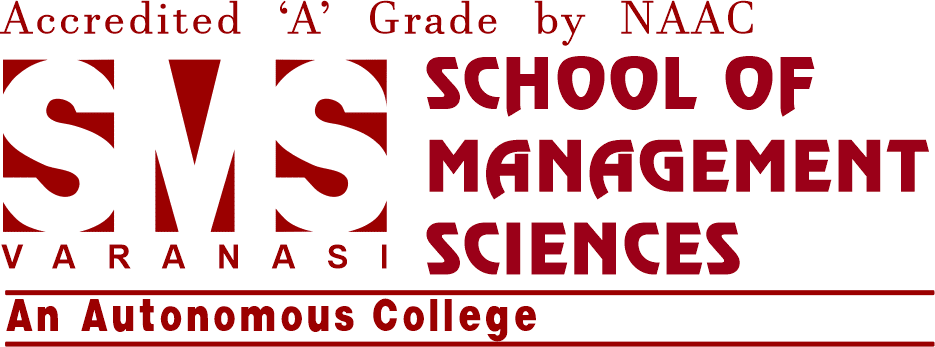
The information technology landscape is ever-evolving, presenting both challenges and immense opportunities for MCA (Master of Computer Applications) graduates. To stay ahead of the curve, it’s essential to capitalise on emerging tech trends that will reshape the future of IT.
In Part 1 of this article, we talked about automating workflows with Robotic Process Automation (RPA), the revolutionary potential of Quantum Computing, and how DevOps is breaking down silos between development and IT operations teams. In this part, we will be delving deeper into Extended Reality (XR) and AI Project Management.
So, let’s start:
4. Extended Reality (XR)

The boundaries between the physical and digital worlds are blurring, and Extended Reality (XR) is at the forefront of this exciting transformation. XR encompasses a range of technologies, including Augmented Reality (AR), Virtual Reality (VR), and Mixed Reality (MR) that create immersive experiences that blend the real and virtual worlds.
Here’s a breakdown of the key components of XR:
- Augmented Reality (AR): AR overlays digital elements onto the physical world. Think of Pokemon Go, where virtual creatures appear in your real-world environment through your smartphone camera.
AR applications have the potential to revolutionise various sectors, from education and training to manufacturing and retail.
- Virtual Reality (VR): VR creates a completely immersive, computer-generated environment. VR headsets transport users to entirely new worlds, from exploring the ocean depths to scaling Mount Everest. VR is finding increasing use in gaming, entertainment, and even corporate training simulations.
- Mixed Reality (MR): MR merges the real and virtual worlds, allowing for interaction between physical and digital objects. Imagine a car mechanic using MR glasses to see repair instructions superimposed on a real engine, or an architect using MR tools to visualise a building design within a physical space.
MR applications hold immense potential for various industries, including engineering, design, and healthcare.
The XR field offers diverse career paths for MCA graduates. You can leverage your skills in this domain through:
- Game and Marketing Content Development: XR is revolutionising the gaming and marketing industry, with the rise of VR and AR-powered games and promotional material. Your programming expertise can be instrumental in developing captivating AR/VR games or marketing content, contributing to the creation of immersive gaming and promotional marketing experiences.
- Application Development: XR applications are finding increasing use in various sectors, such as education, healthcare, and retail. You can develop applications for training simulations, product visualisation, or interactive learning experiences that utilise AR, VR, or MR technologies.
- Software Development Tools: As XR technology evolves, specialised development tools are needed to create and manage XR applications and content.
Your programming skills can be valuable in contributing to the development of these specialised tools, which may involve creating engines for rendering XR experiences, designing tools for 3D content creation, or developing user interaction frameworks for XR applications.
To excel in XR careers, you should:
- Develop a Strong Programming Foundation: A strong foundation in programming languages like C++, C#, and Unity Script is crucial for developing XR applications. These languages are widely used in XR development tools and game engines.
- Learn 3D Development Concepts: XR experiences often involve 3D graphics and environments. Familiarise yourself with 3D modelling tools like Maya or Blender, and explore game engines like Unity or Unreal Engine that offer robust features for XR development.
- Stay Updated on Emerging Technologies: The XR landscape is rapidly evolving. Actively follow industry trends, attend conferences, and participate in online communities focused on XR to stay abreast of the latest advancements and ensure your skillset remains relevant.
The global XR market is projected to reach a staggering USD 440.6 billion by 2027.
5. AI Product Management

Artificial Intelligence (AI) is rapidly transforming industries and user experiences. AI algorithms are being used to power everything from facial recognition software to self-driving cars. At the heart of this revolution lies AI Product Management, a field that requires a unique blend of technical knowledge and business acumen.
AI Product Managers are responsible for the entire lifecycle of AI products, from ideation and development to launch and ongoing management. They work closely with engineers, data scientists, and other stakeholders to ensure that AI products are not only technically sound but also meet user needs and deliver real-world value.
MCA graduates have a strong foundation in computer science, which provides them with a deep understanding of how AI algorithms work. Additionally, their curriculum often includes courses in database management, which is crucial for handling the vast amount of data required to train AI models. They also have an understanding of software development principles allows them to communicate effectively with engineers and developers working on AI products.
While an MCA degree provides a solid foundation, several steps can enhance your profile for a career in AI Product Management:
- Bridge the Knowledge Gap: Take online courses on AI and machine learning to gain a deeper understanding of these technologies. Several platforms offer introductory and advanced courses on AI concepts, algorithms, and applications.
- Develop Data Analysis Skills: Data analysis is crucial for AI Product Managers. Courses in data science or business intelligence can equip you with the skills necessary to analyse data, identify trends, and extract insights that can be used to inform product development decisions.
- Build a Project Portfolio: Develop a project portfolio that showcases your ability to solve real-world challenges using AI principles. This could involve building a simple AI-powered application or participating in hackathons focused on AI development. Demonstrating your practical understanding of AI through projects can significantly enhance your candidacy.
The global market for AI is projected to reach a staggering USD 1,798.4 billion by 2025. MCA graduates who embrace continuous learning can position themselves for exciting and rewarding careers at the forefront of AI innovation.
Conclusion
The IT landscape is constantly evolving, and emerging tech trends present both challenges and opportunities. MCA graduates hold a significant advantage with their strong foundation in computer science principles.
By embracing these trends, continuously honing their skills, and specializing in areas of interest, MCA graduates can thrive in this dynamic environment and carve successful careers at the cutting edge of the future of IT.

